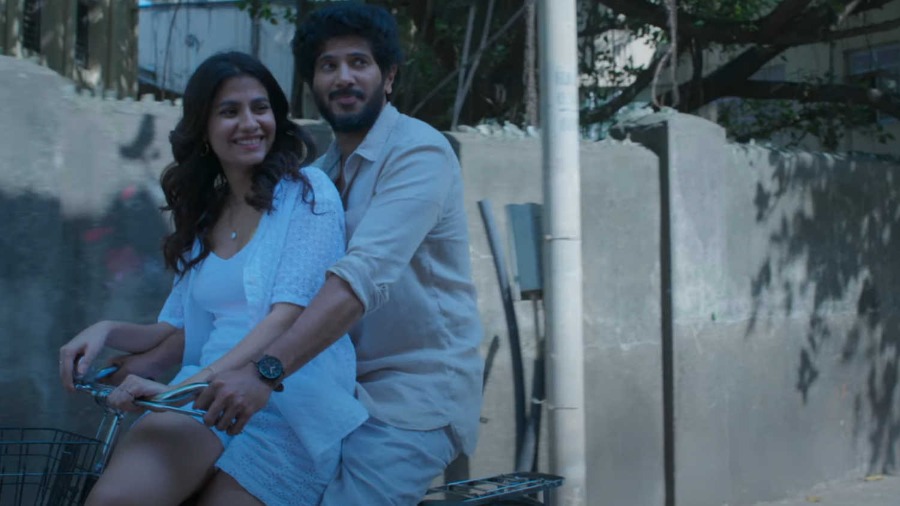The job of a movie critic is not as glamorous as it seems. They have to watch a film, analyse the fine elements and then pen their thoughts into a piece that may be unpalatable for many. It often happens that a movie praised highly by the critics bombs at the box office, while one panned by them goes on to become a blockbuster. But do filmmakers and actors take the critics seriously? How do negative reviews affect them? Are critics honest in their judgment? These are some questions that R Balki’s directorial Chup: Revenge of the Artist tries to tackle.
The film has a solid premise. It is a subject like no other. An unhinged serial killer is on the loose in Mumbai. His targets: film critics. He does not just kill them but mutilates their bodies in the most gruesome manner, carving out stars on their skin. The police are in a quandary. Arvind Mathur (Sunny Deol), head of the crime branch, leads a manhunt against the serial killer, with the help of Zenobia (Pooja Bhatt), a criminal psychologist. A cat and mouse game between the police and the killer ensues.
R. Balki has always told unconventional stories. Be it the love story between a 64-year-old man and a 34-year-old woman in Cheeni Kum or a rare genetic disorder in Paa, Balki always treads into roads less travelled. He is also madly in love with films, which is evident throughout Chup: Revenge of the Artist. He is joined by celebrated film critic Raja Sen and Rishi Virmani in the writing department, which widens the horizon of possibilities.
Chup is Balki’s love letter to Guru Dutt, a filmmaker who was shunned by the critics of his time. The film is laced with references to Guru Dutt’s works. Songs like Yeh Duniya or Jaane Kya Tune Suni have been used in perfectly-timed contexts that lift the film’s narrative. Even the final frame of the movie is a fine tribute to the legendary actor-filmmaker.
Balki adds his own dash of humour to the narrative to make it relatable and engaging. The scenes between the film, for example. The dry humour, in the face of a serial killer on the prowl, is top-notch. Balki dives into the inner recesses of the human mind to explore raw emotions, and how trauma might affect a person’s reactions to his surrounding world.
Balki succeeds in making the audience believe in his story, merely by his casting. Dulquer Salmaan, as the loner florist, delivers a knock-out performance. He portrays the complexities of his character with ease, bringing out the inner struggles of Danny with lucidity. As his love interest in the film, Shreya Dhanwantary (remember Scam 1992?) is delectable but her character has limited scope in the scheme of things. Sunny Deol has hit a sixer as the hardworking and smart police officer. Even in her short appearance, Pooja Bhatt makes a strong impact.
The real winner in this film is surely cinematographer Vishal Sinha, who has explored Mumbai in a new light for this movie. From recreating homages to Guru Dutt to capturing the brooding mood of the city, every frame is a masterclass in itself. The final scene in the climax will leave you awestruck and numb. Vishal’s frames are accentuated by the haunting score. The use of old ’60s songs to invoke fear is an ingenious move.
Chup is more than just a serial killer story. It is an ode, a hat tip to everyone associated with the craft of filmmaking, and also the audience who invest their time and money to watch movies. Balki’s film is not without flaws. After a rousing build-up in the first half, the big reveal at the end may not come as a surprise, but it is the process that needs to be appreciated.










